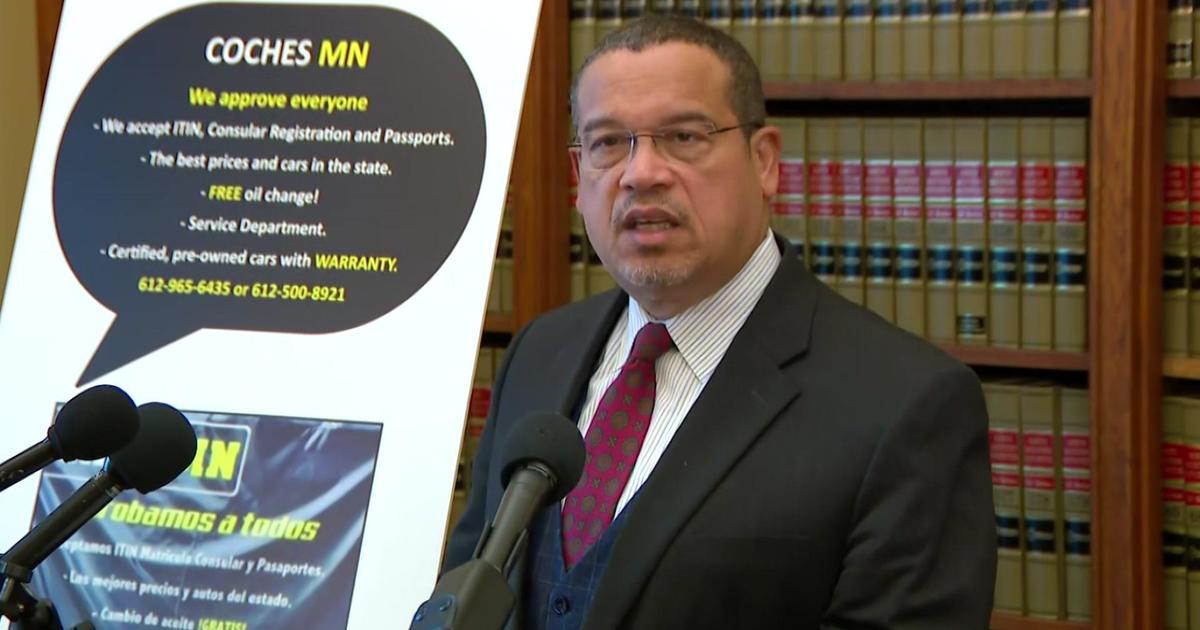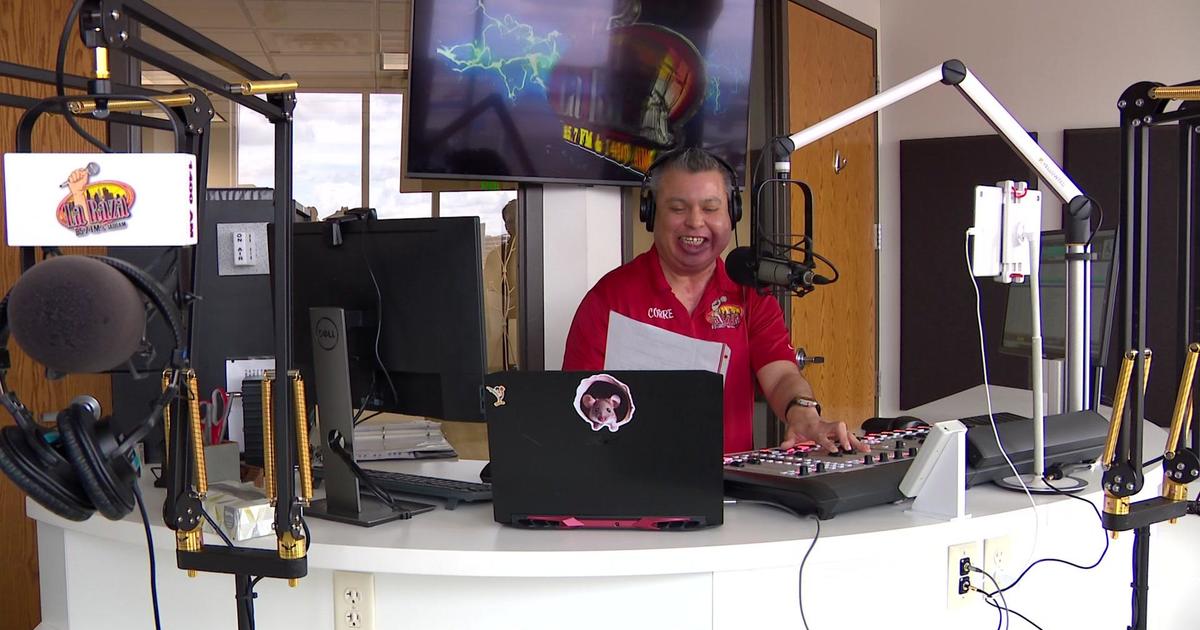MNfusion: Irie Sol To Debut Latest Album At 'Puttin' On The Fitz'
Many musicians often speak about how the inspiration for their lyrics is derived from actual experiences. These experiences can range from relationships, turmoil, travel and even other forms of art.
Such is the case with Twin Cities/Eau Claire band Irie Sol. The soulful group's latest album, "Dred Scott Fitzgerald," was inspired by none other than St. Paul author F. Scott Fitzgerald.
But the album goes beyond simply using the experience of reading Fitzgerald and uses Fitzgerald's actual work and incorporates it with their own.
Blending readings of "The Great Gatsby" and "Bernice Bobs Her Hair" with musical numbers, Irie Sol creates a unique sound and experience.
It's this album that will be exclusively released during the Twin Cities' official celebration of Fitzgerald's birthday on Thursday, Sept. 24.
The party, "Puttin' On The Fitz," will be held from 5:30 to 11 p.m. at the Commodore Hotel.
From 5:30 to 7 p.m. a dinner will be held honoring the late Fitzgerald. Then, from 8 to 11 p.m., Irie Sol will perform selections from their new album.
Tickets to the dinner are sold out, but tickets to the after-party are still available. Cost is $25 and includes a drink ticket, dancing and treats.
Prior to the album's debut, I got a chance to speak with band founder and member Dr. Joel Pace about the new album and the inspiration of F. Scott Fitzgerald on both form and lyrics.
---
You've described the art of combining literature with music as "lit hop." Tell me, what does "lit hop" mean to you?
Lit hop is literary hip hop.
Hip hop is rhythmic [and incorporates] rhyming words, so, in one sense, [hip hop is] spoken-word poetry. Lit hop takes this connection a step further by making it overt by purposefully fusing the two. Hip hop culture provides us with a good image to explain lit hop. Imagine, in Beck's words, "two turntables and a microphone" with a mixer. The right one is playing classic literature, while the left one is spinning hip hop. Lit hop is the DJ cutting back and forth between the two, scratching the surface of vinyl frontiers and remixing the discs into something fresh that provides the backbeat or accompaniment for his or her words spoken into the mic.
That is a very effective image! Beyond "lit hop," as a band Irie Sol likes to use a lot of different styles. What are the most predominant styles found in your new album, "Dred Scott Fitzgerald?"
We like to sample from various musical styles to create a literary/musical mash up of four 'R's' – ragtime, rap, reggae and rock.
Sounds like listeners can expect a very unique sound. When discussing the new album you've been quoted as saying "We're reimagining the novel as each song acts as a chapter in a new form of narrative fiction." Does that mean each chapter influenced a song on the album? How will listeners understand the story by listening to the music?
Structurally, "The Great Gatsby" is blocked like a play or film. Each scene is a tessera that, alongside the others, functions mosaic-like to give readers the larger picture or overarching story. Our hope is that the tracks on the album function the same way. Each song tells a story as well as leads into the next song, which continues the narrative.
Why did you choose "The Great Gatsby?" What about the book do you feel lends itself to music?
"The Great Gatsby" is known as THE novel of the "Jazz Age," and accordingly the key scenes have soundtracks. Fitzgerald either mentions a song by name or drops a quotation from the lyrics right into the scene. To view this technique anachronistically through the lens of hip hop culture, he's using a technique also employed by producers, DJs and rappers: he's sampling classic jazz. Since "Gatsby" is a novel with a musical background, it inspired us to create an album with a literary backdrop. The rhythmical styles of one drop, which defines reggae, and syncopation, which defines ragtime, feature silence where the listener is accustomed to hearing a beat. In both instances the beat arrives "late." Similarly, the plot of "Gatsby" hinges on silence, absence and the late arrival of Jay on the scene. Like the jazz musicians of the day, he tries to bend time to create the music of love and longing.
What do you feel has been the relationship between literature and music? How are you hoping to change or add to that?
The relationship between music and literature has come full circle. The connection stretches back thousands of years to a time when the two were inseparable, as they now are once again in lit hop. For instance, the poetry accredited to Homer had a plot that was sung or chanted in metrical lines. Similarly, the founding fathers and mothers of the hip hop nation, rappers like Slick Rick and Lauryn Hill, delivered rhythmic raps that told stories. When Nas raps, "I never sleep, cause sleep is the cousin of death," he's sampling Thomas Sackville, Earl of Dorset (1536-1608), who was remixing Homer's line that sleep is death's brother. Also, lyrics that quote, refer or allude to classic literature in order to redefine, reinforce, and/or subvert it are another form of lit hop.
Most practitioners of lit hop, such as Akala, Baba Brinkman and MC Lars, record hip hop settings of works of classic literature. We wondered what happens to the characters from literature when their stories and lives are drawn to a close by the author. So, rather than repeating an existing story by telling it in rhythm and rhyme, we thought it would be fun to begin where these stories end. Our version of lit hop uses narrative lyrics to create fictional realms where characters created by authors have afterlives, where they mingle with other characters from literature, figures from history and even the very authors who created them.
Sounds like a very creative way to use different elements of a literature to create a new story through song. I know many readers often wonder what becomes of their beloved characters. Going off of the themes of the relationship between music and literature, how do you feel music enhances literature? How does literature enhance music?
Authors draw upon the natural cadences in speech patterns to create an aesthetic that enhances and defines characters by the rhythm of their monologues or dialogue. Musicians, from bards to griots to troubadours to rockers to rappers, have made the inherent rhythms of speech overtly musical. They have relied upon the descriptive and narrative powers of language to give a voice and story to the feelings and emotions created and reflected by their music.
Irie Sol will perform at "Puttin' On The Fitz," from 8 to 11 p.m. on Thursday, Sept. 24 at the Commodore Hotel. For more information, or to purchase tickets, visit Irie Sol online.



